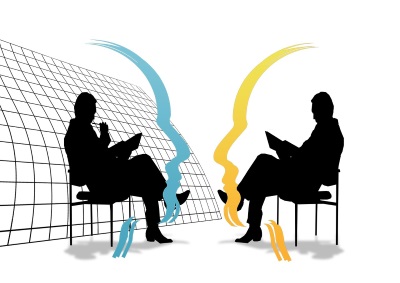The recent announcement by Warner Bros., that their upcoming slate of films leading into 2021 will be released simultaneously in theatres and on their streaming service HBO Max, has rocked the film industry, with notable figures up in arms at the decision. More than anything, it has reminded us that show business is still just that: a business.
This is something director Denis Villeneuve is keenly aware of, whose highly anticipated science fiction epic Dune was delayed twice before being pushed all the way back to an October 2021 release, and is now included in Warner Bros.’ dual-release plan. In a statement released in Vogue last week, Villeneuve said:
“With this decision AT&T has hijacked one of the most respectable and important studios in film history. There is absolutely no love for cinema, nor for the audience here. It is all about the survival of a telecom mammoth”.
You might be wondering exactly what it is about this decision that has the likes of Villeneuve, as well as Christopher Nolan and Judd Apatow passionately railing again it, but before delving into the ramifications of this controversy it is essential to know that, without going into the convoluted details, AT&T reached a deal to buy WarnerMedia in 2016, which was completed in 2018. This grants the corporate behemoth ownership of the numerous brands that fall under WarnerMedia’s broad multimedia umbrella, which includes Warner Bros. Entertainment and HBO.
The theatre experience is something that is beloved by many filmmakers, and auteurs like Villeneuve and Nolan even craft their films with that in mind (IMAX, cinematography, etc.) but their ire extends beyond artistic merit. For better or worse, a film’s success is not only measured by its critical reception, but also its commercial performance, which will undoubtedly suffer at the hands of this move. To say they were blindsided would be an understatement, given recent reports that Warner Bros. may not have consulted the numerous production companies, filmmakers and actors who are affected by this decision.
Well, with the exception of writer/director Patty Jenkins and her star Gal Gadot, who were not only forewarned, but have received $10 million US each, privileges not even afforded to the stars like Denzel Washington, Will Smith and Keanu Reeves. This is compensation for the damage the move will do to the upcoming Wonder Woman 1984’s box office returns, and by extension their own bottom lines, as they are undoubtedly contracted to receive a percentage of the overall box office. It is worth noting, though, that The New York Times reports that Jenkins and Gadot were essentially bribed to promote the new direction from Warner Bros., i.e., AT&T.
Whatever the case, this is what it all comes down to, the bottom line. AT&T are not far removed from a merger that cost them $85 billion US, taking on significant debt in the process. Had it not been for COVID-19, the company would almost certainly be well-equipped to shoulder the financial burden and pay off its debts while drawing largely solid profit margins. Instead, this unprecedented moment in modern history has driven the company’s debts upwards of $150 billion US, a number that will only continue to grow if AT&T does not act.
I am certainly wary of the increasing consolidation of media companies under a select number of conglomerates, but corporate cynicism aside, I can somewhat appreciate the moves taken by AT&T in light of global circumstances, particularly given that the ‘experimental’ theatrical release of Nolan’s Tenet in August/September failed, to no one’s surprise, adding an estimated $100 million US to AT&T’s budgetary black hole.
That being said, the indignant reactions from the filmmakers such as Denis Villeneuve is also understandable, as they were totally caught off guard by this seismic shift in their industry and its financial implications. Moreover, it is reasonable to not be thrilled at the prospect of being promotional tools for HBO Max, which Nolan has described as “the worst streaming service”, likely referring to the notable criticism it has drawn since its inception, which boils down to its failure to distinguish itself from an increasingly crowded streaming market, with the floundering subscriber numbers to prove it. Yet, while this latest move has intensified the controversy around HBO Max, it has also made it much more relevant, something AT&T are brazenly aware of, however they choose to spin it.
What will ultimately be interesting to see, from the perspective of the average consumer, is how AT&T’s decision will affect the film industry moving forward. Perhaps it will be no more than a ripple brought on by the pandemic, reverting to normality as vaccines are rolled out. Or perhaps this is a watershed moment in cinematic history. It can be difficult to see past the miasma of trying events as they unfold, but this decision could potentially shape the way we watch films moving forward. Only time will tell.

